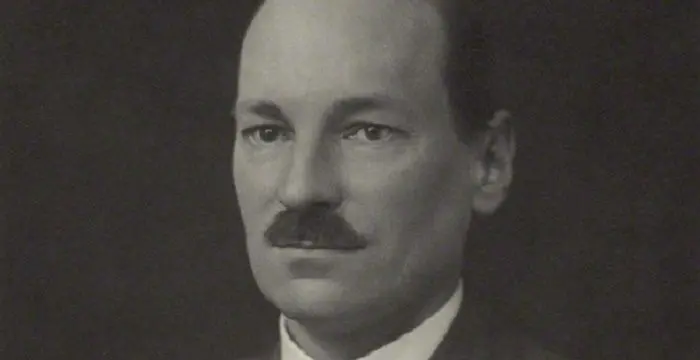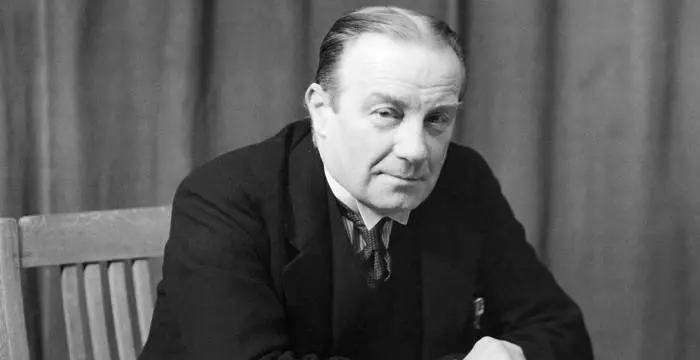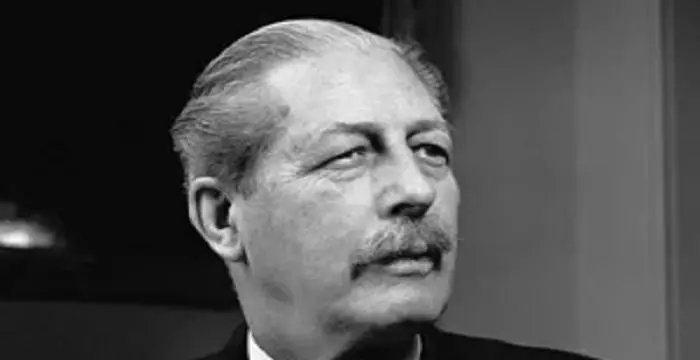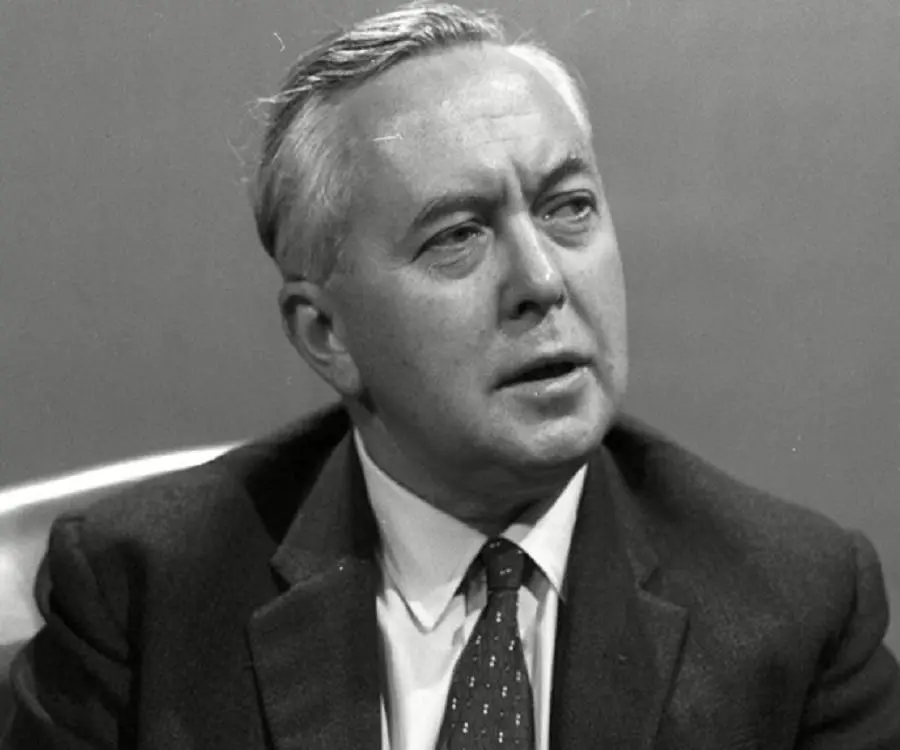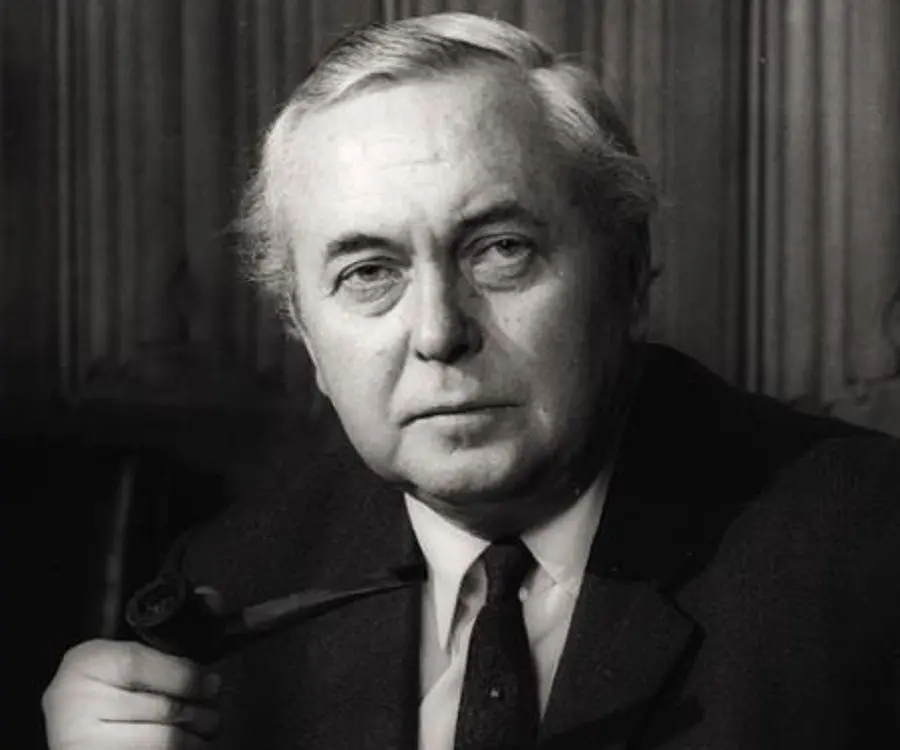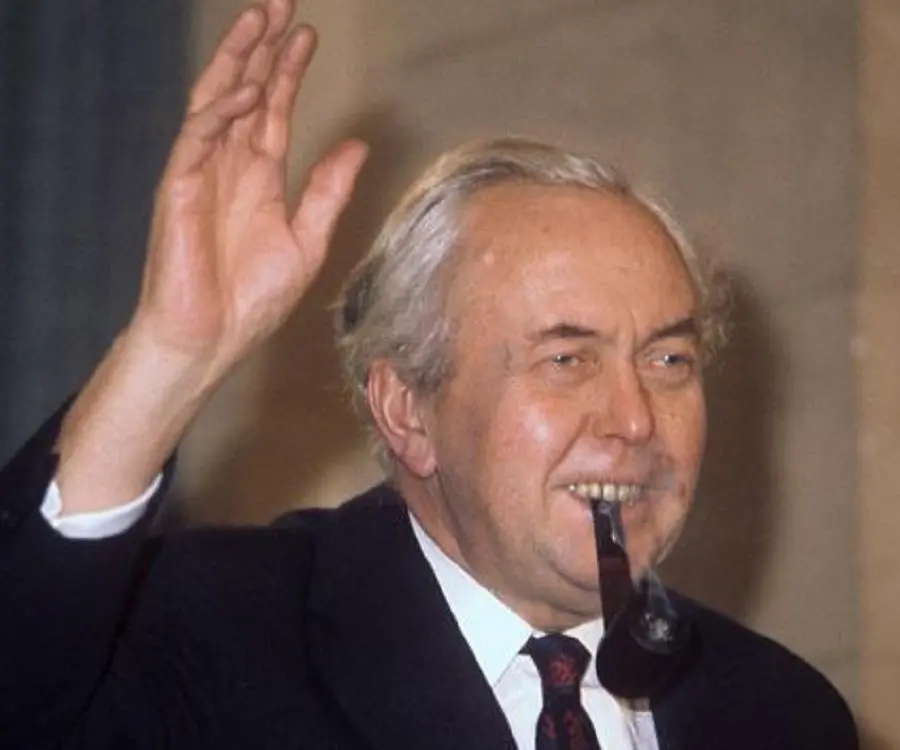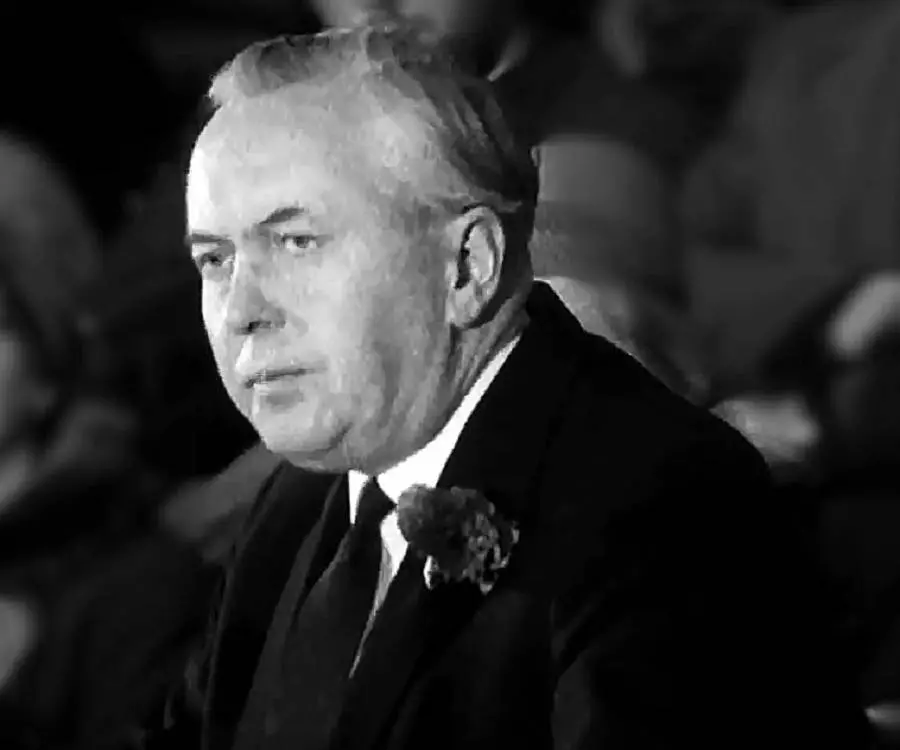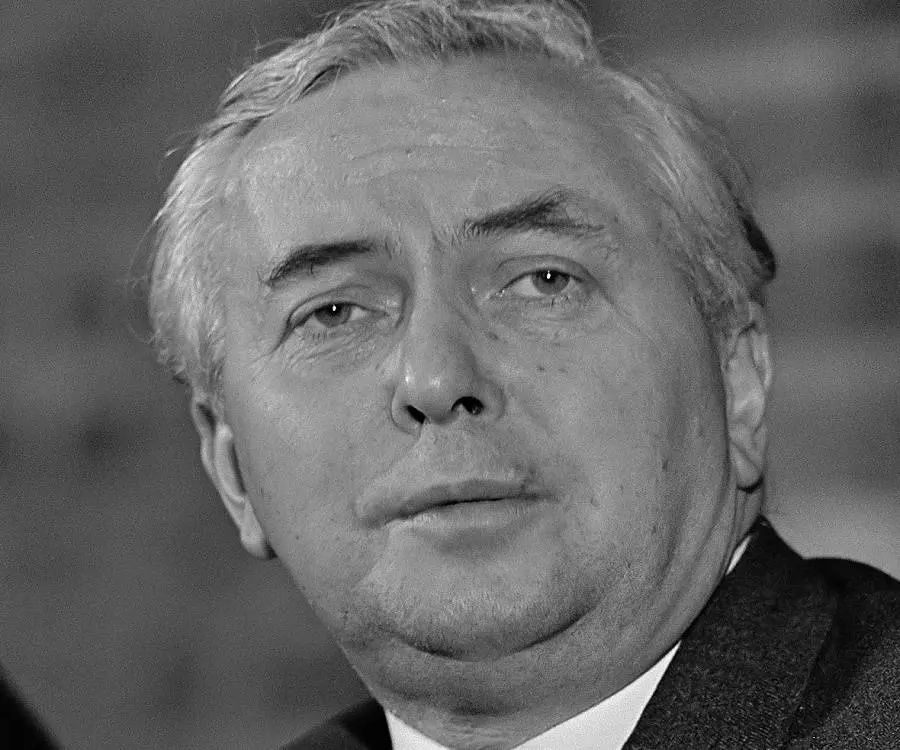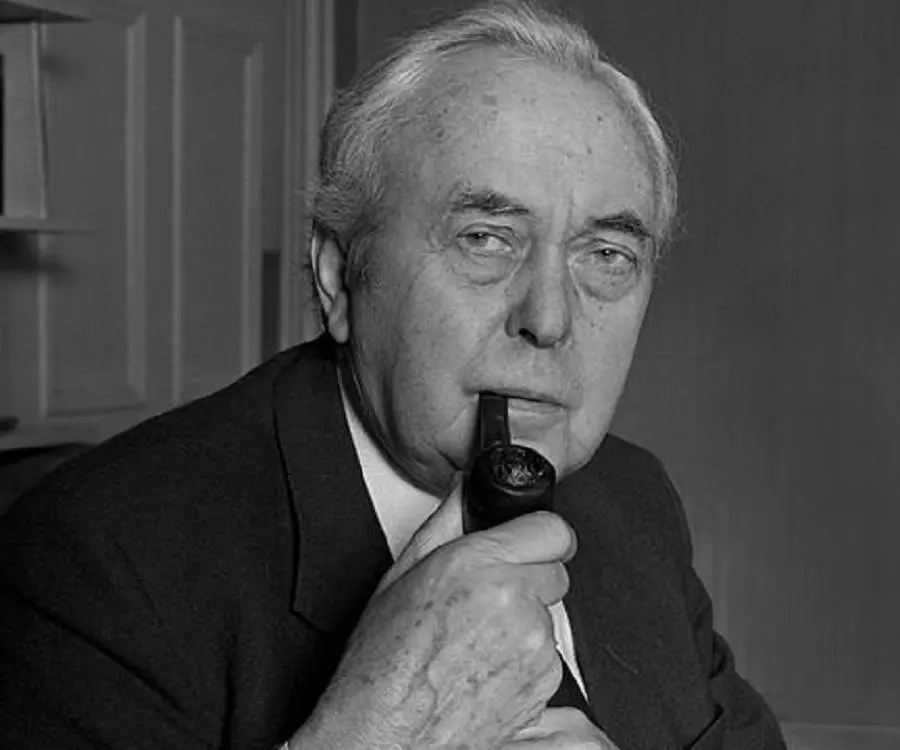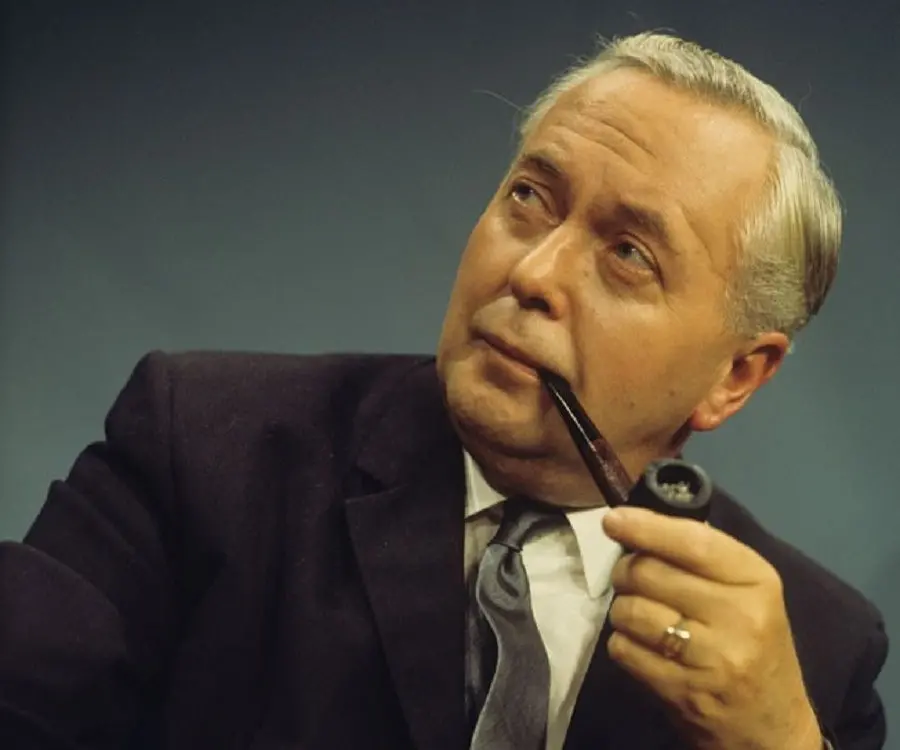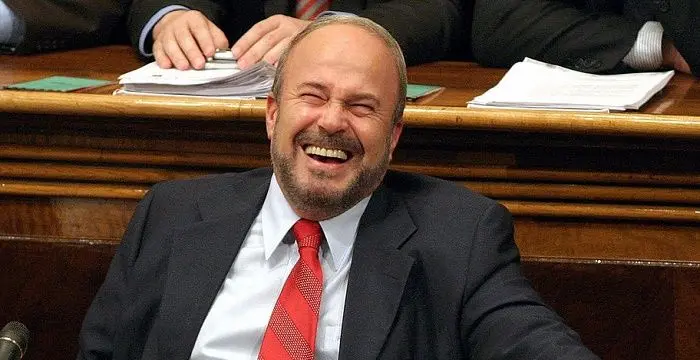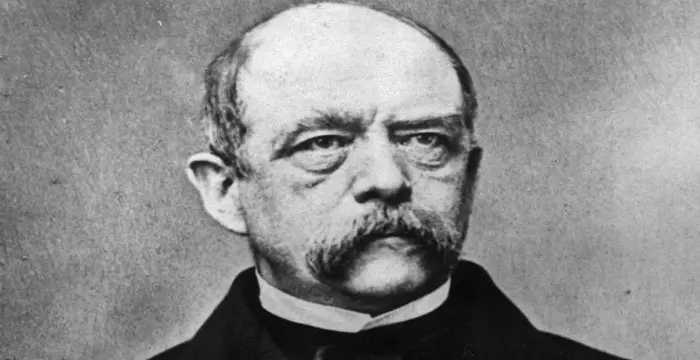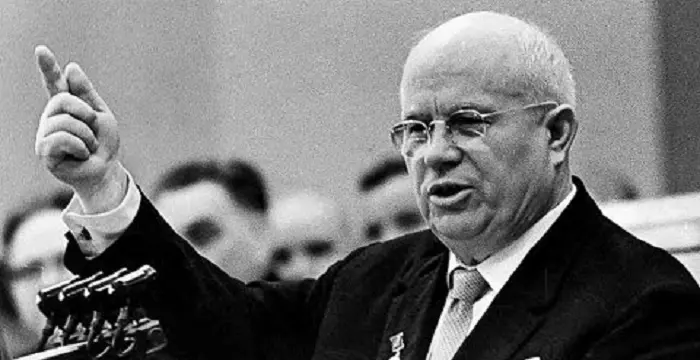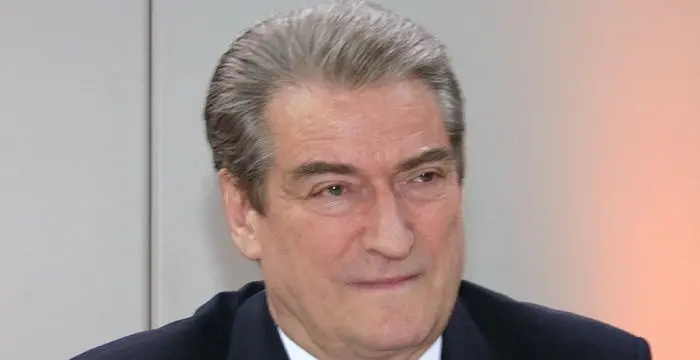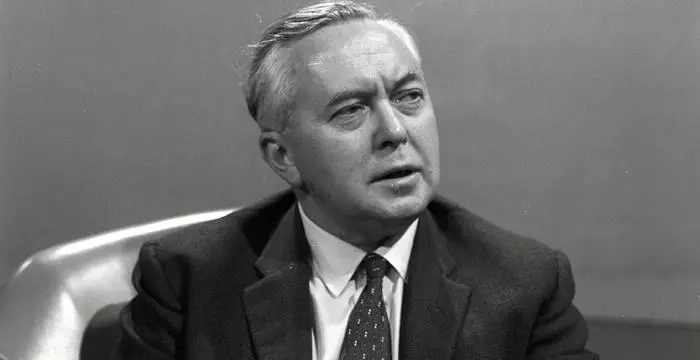
Harold Wilson - Former British Prime Minister, Family and Family
Harold Wilson's Personal Details
Harold Wilson was a British Labour politician who served twice as the Prime Minister of United Kingdom
| Information | Detail |
|---|---|
| Birthday | March 11, 1916 |
| Died on | May 24, 1995 |
| Nationality | British |
| Famous | Leaders, Political Leaders, Prime Ministers, Former British Prime Minister |
| Spouses | Mary Baldwin (m. 1940) |
| Known as | James Harold Wilson, Baron Wilson of Rievaulx |
| Childrens | Robin Wilson |
| Universities |
|
| Cause of death |
|
| Birth Place | Huddersfield |
| Political Ideology | Labour |
| Religion | Congregational church |
| Height | 173 |
| Gender | Male |
| Father | James Herbert Wilson |
| Mother | Ethel Wilson |
| Sun Sign | Pisces |
| Born in | Huddersfield |
| Famous as | Former British Prime Minister |
| Died at Age | 79 |
// Famous Former British Prime Minister
Clement Attlee
Clement Richard Attlee was a British Labour Party politician and Britain’s first post-World War II Prime Minister. This biography provides detailed information about his childhood, life, achievements, works & timeline
Stanley Baldwin
Stanley Baldwin was a British Conservative Politician and three times Prime Minister of Great Britain. This biography of Stanley Baldwin provides detailed information about his childhood, life, achievements, works & timeline
Harold Macmillan
Harold Macmillan was an English statesman from the ‘Conservative Party’ who served as the Prime Minister of the UK from 1957 to 1963. Check out this biography to know more about his childhood, family, personal life, career, etc.
Harold Wilson's photo
Who is Harold Wilson?
Harold Wilson was a British Labour politician who served twice as the Prime Minister of United Kingdom; from 1964 to 1970 and from 1974 to 1976. He grew up in a politically active lower middle class family. Entering Oxford with an exhibition and council grant, he became the youngest Oxford don of the century at the age of 21 and began his career as a lecturer at New College and later won a fellowship at the University College. During the Second World War, he was considered a specialist and was drafted in the civil service. After the war, he entered the House of Commons and was immediately given important positions, eventually occupying the post of the Prime Minister of United Kingdom, first from 1964 to 1970 and then from 1974 until his premature retirement in 1976. During this period, he undertook major reforms as well as many welfare measures that brought in relative prosperity for the common mass.
// Famous Leaders
Edi Rama
Edi Rama is the current Prime Minister of Albania. Check out this biography to know about his childhood, life, achievements, works & timeline.
Tecumseh
Tecumseh was a Native American leader of the Shawnee clan. This biography profiles his childhood, life and timeline.
Khalifa bin Zayed Al Nahyan
Sheikh Khalifa bin Zayed Al Nahyan is the current President of the United Arab Emirates (UAE). Check out this biography to know about his birthday, childhood, family life, achievements and fun facts about him.
Childhood & Early Years
James Harold Wilson was born on 11 March, 1916 in Milnsbridge, located in the outskirts of Huddersfield, a large market town in Yorkshire, England. Although his family belonged to the lower-middle class stratum, young Harold grew up watching real poverty and dependence on charity all around him.
His father, James Herbert Wilson, was an industrial chemist by profession. Initially, he was an active member of the Liberal Party; but after the First World War, joined the Labour Party. His mother, Ethel née Seddon, was a former schoolteacher. Harold Wilson had an elder sister named Edith Marjorie Wilson.
From the very beginning, his parents instilled in him an austere view of life. He was taught to keep his problems and anxieties under his control and not to display his feelings. Consequently, he grew up loyal, but lonely, having few friends with whom he could open up.
In 1920, he began his education at New Street Elementary School, Milnsbridge, studying there until 1927. Sometime around 1924, when he was eight years old, he visited London, where he had a picture taken, standing at the doorstep of the Prime Minister’s official residence at 10 Downing Street.
In 1926, 10-year-old Harold travelled to Australia, where his maternal uncle, Harold Seddon, was a Member of the Legislative Council of Western Australia. Fascinated by the pomp and glamour of politics, Harold Wilson wanted to become prime minister and told his mother so on their return journey.
In 1927, he entered Royds Hall Grammar School with scholarship, studying there until 1932. He was good student, who topped in almost all subjects. However, he concentrated mostly on his school curriculum, reading little outside it. Neither did he show any interest in team game, instead preferring long distance running.
In 1930, his father lost his job and moved his family to Spital, a suburban area of the Metropolitan Borough of Wirral, Merseyside in 1932. In the same year, he entered Wirral Grammar School, studying there till 1934.
In 1934, financed by an exhibition and a council grant, Harold entered Jesus College, University of Oxford with Modern History. But at the end of the year, he switched to Philosophy, Politics and Economics (PPE).
Although he was a hard working student, his professors believed that he lacked originality even in his chosen subjects. He was better known for quick assimilation of knowledge, which he kept in order in his brain and then produced them lucidly on papers. It helped him to get good marks.
In Oxford, he also received number of prizes, the first among which was the Gladstone Memorial Prize, which he got for his essay; ‘The state and the railways in Great Britain 1823–63’. Winning the George Webb Medley Senior Scholarship, was another significant achievements of this period
It is not known when, but sometime in his college years, he came in touch with the libertarian socialist, George Douglas Howard Cole, and was strongly influence by him. Otherwise, he did not socialize much; but was moderately active in the Liberal Party.
Early Career
In 1937, Wilson earned his Bachelor of Arts degree with a first class and alphas on each paper. In the same year, he began his career as a lecturer of Economic History in New College.
Also in 1937, he started working with William Beveridge on the theories of John Maynard Keynes. Although they were not really fond of each other, with Beveridge calling Wilson ‘a machine, not a human being’, it did not stop them from forming a mutually beneficial collaboration.
While preparing his epoch report on social insurance and other welfare measures, Beveridge heavily depended on Wilson’s efficient and streamlined assistance. In return, he helped Wilson to secure a Fellowship at the University College in 1938, which continued till 1945.
As the Second World War broke out, Wilson volunteered for military service. May be because of his work with Beveridge, he was classified as a specialist and was drafted in the civil service. In 1941, he started working as a statistician and economist for the coal industry.
In 1943, he became the Director of Economics and Statistics, Ministry of Fuel and Power, holding the position till 1944. Here, he undertook an extensive research, greatly improving the available statistics, making the picture clear for the authorities. The result was published in 1945 as ‘New Deal for Coal’.
Entering Politics
As the Second World War came to an end, Harold Wilson decided to contest the 1945 general election on Labour Party ticket. Therefore, he resigned from his civil service job, eventually entering the House of Commons from Ormskirk and was immediately appointed as the Parliamentary Secretary to the Ministry of Works.
In 1947, he was appointed Secretary for Overseas Trade, in which capacity he made several trips to the USSR. Later on 29 September 1947, he became President of the Board of Trade, thus becoming United Kingdom’s youngest Cabinet Minister since 1792. In this capacity, he abolished some of the wartime rationing.
During this period, he started cultivating his middleclass image. He dropped his first name James and continued to speak in his Yorkshire accent, preferring beer rather than champagne, wearing raincoat over a shabby suit. In the political circle, he began to be known as a Left winger.
In 1951, when it was announced the National Health Service, which had been designed as a free service, would charge the patients, Wilson resigned from his post along with the Minister of Health, Aneurin Bevan. The gesture made him even more popular.
In the 1951 general election, Wilson stood for the new seat of Huyton near Liverpool and although his party lost the election he narrowly won the seat. Eventually, he became Labour’s spokesperson on finance and foreign affairs.
In 1960, Wilson unsuccessfully challenged Hugh Todd Naylor Gaitskell in the Labour Party Leadership election. But when Gaitskell died in 1963, he defeated George Brown and James Callaghan to become the Leader of the Labor Party.
Prime Minister - First Term
In 1964, the Labour Party won the general election with a thin majority of four seats and was invited to form government. On 16 October, Harold Wilson, was appointed the Prime Minister of the United Kingdom, thus becoming the youngest person to hold the office since Lord Rosebery in 1894.
His first term in office was riddled with problems. He not only inherited large external deficit on the balance of trade, but after by-election in 1965, the party’s majority was reduced to one seat. Also in 1965, the British colony of Rhodesia illegally declared independence, forming a white minority government.
In spite of various problems, Wilson was able to convey to the electorate that his government was more interested in national benefit than in socialist ideas. In 1966, he took a gamble, holding fresh election, in which he was able to improve his party’s electoral tally.
He now concentrated on passing number of social reforms, outlawing capital punishment in 1966. In 1967, he passed Sexual Offence Act, decriminalizing homosexual act in private and Abortion Act, legalizing abortion. The Theatres Act 1968 abolished censorship of the stage.
Continuing to work for the middleclass, he froze rents, announced government subsidies on certain food items, and imposed price controls. Willing to listen, he negotiated with all parties to end the vicious circles of miners’ strikes. To enable working class to pursue higher education, he established Open University in 1969.
In spite of being pressured by US President, Lyndon Johnson, he declined to get involved in Vietnam War, refusing to send troops, which greatly enhanced his popularity. But in August 1969, he agreed to deploy troops in Northern Ireland at the request of the Government of North Ireland.
In spite of all these welfare measures, his popularity began to erode after the devaluation of pound on 18 November, 1967 and as a consequence, the Labour Party lost the 1970 general election. Thereafter, he sat in the opposition from 1970 to 1974.
Second Term as PM
In the February 1974 general elections, the Conservative Party won a plurality of the popular vote, but was unable to form a coalition. Consequently, Harold Wilson was compelled to form a minority government and took office as Prime Minister of the United Kingdom on 4 March 1974.
In spite of heading a minority government, Wilson started implementing a number of welfare projects, announcing an additional amount of £2,000,000,000 for benefits, food subsidies, housing subsidies and state pension. Council house rents were also frozen.
On 10 October 1974, he called for another general election, in which the Labor Party won by three seats. In spite of financial difficulties, he continued to carry out a wide range of reforms, increasing expenditure on health and education, covering the expenses with higher taxes on the rich.
In 1975, despite his success in social sector, he had to face criticism as the number of unemployed passed 1,000,000. The conflict in Northern Ireland also continued to pose a problem and he tried to bring peace by secretly negotiating with the rebels
On 16 March 1976, Wilson surprised his colleagues by announcing his resignation as the Prime Minister, claiming that he had always planned to resign at sixty and that he was mentally and physically worn out. The resignation took effect on 5 April 1976.
After resigning from office, Wilson continued to retain his seat in the House of Commons, representing Huyton until 1983. Thereafter, as Baron Wilson of Rievaulx, he entered the House of Lords, continuing to attend its sessions until a year prior to his death.
Major Works
Harold Wilson is remembered for managing a number of complicated political issues such as Britain’s participation in the Vietnam War with tactical ease. He refused to send forces to Vietnam, sighting British military presence in the Suez Canal as the reason, instead offering verbal support for the American position.
Personal Life & Legacy
On 1 January, 1940, Harold Wilson married Gladys Mary Baldwin, whom he met in 1936. Although for Wilson it was a love at first sight Mary took some time to decide. They had two sons, Robin and Giles. Mary was also a poet, having ‘Selected Poems’ published in 1970.
Harold Wilson died on 24 May 1995 from colon cancer and Alzheimer's disease. He was then 79 years old and was survived by his wife and children.
Trivia
A prolific writer, Wilson published his last book, ‘Memoirs: the making of a Prime Minister 1916-1964’ in 1986. After retirement, he also appeared in number television shows, hosting two editions of the BBC’s ‘Friday Night, Saturday Morning’ and playing himself as Prime Minister in an Anglia Television drama, ‘Inside Story’.
// Famous Political Leaders
Edi Rama
Edi Rama is the current Prime Minister of Albania. Check out this biography to know about his childhood, life, achievements, works & timeline.
Khalifa bin Zayed Al Nahyan
Sheikh Khalifa bin Zayed Al Nahyan is the current President of the United Arab Emirates (UAE). Check out this biography to know about his birthday, childhood, family life, achievements and fun facts about him.
Leo Varadkar
Cam Leo Varadkar is the current Taoiseach—the Prime Minister—of the Republic of Ireland. Check out this biography to know about his childhood, family life, achievements and other facts about his life.
Harold Wilson's awards
| Year | Name | Award |
|---|---|---|
Other | ||
| 0 | Officer of the Order of the British Empire | |
Harold Wilson biography timelines
- // 1823 To 1863In Oxford, he also received number of prizes, the first among which was the Gladstone Memorial Prize, which he got for his essay; ‘The state and the railways in Great Britain 1823–63’. Winning the George Webb Medley Senior Scholarship, was another significant achievements of this period
- // 1894 To 1964In 1964, the Labour Party won the general election with a thin majority of four seats and was invited to form government. On 16 October, Harold Wilson, was appointed the Prime Minister of the United Kingdom, thus becoming the youngest person to hold the office since Lord Rosebery in 1894.
- // 11th Mar 1916James Harold Wilson was born on 11 March, 1916 in Milnsbridge, located in the outskirts of Huddersfield, a large market town in Yorkshire, England. Although his family belonged to the lower-middle class stratum, young Harold grew up watching real poverty and dependence on charity all around him.
- // 1926In 1926, 10-year-old Harold travelled to Australia, where his maternal uncle, Harold Seddon, was a Member of the Legislative Council of Western Australia. Fascinated by the pomp and glamour of politics, Harold Wilson wanted to become prime minister and told his mother so on their return journey.
- // 1927 To 1932In 1927, he entered Royds Hall Grammar School with scholarship, studying there until 1932. He was good student, who topped in almost all subjects. However, he concentrated mostly on his school curriculum, reading little outside it. Neither did he show any interest in team game, instead preferring long distance running.
- // 1934In 1934, financed by an exhibition and a council grant, Harold entered Jesus College, University of Oxford with Modern History. But at the end of the year, he switched to Philosophy, Politics and Economics (PPE).
- // 1937In 1937, Wilson earned his Bachelor of Arts degree with a first class and alphas on each paper. In the same year, he began his career as a lecturer of Economic History in New College.
- // 1937Also in 1937, he started working with William Beveridge on the theories of John Maynard Keynes. Although they were not really fond of each other, with Beveridge calling Wilson ‘a machine, not a human being’, it did not stop them from forming a mutually beneficial collaboration.
- // 1938 To 1945While preparing his epoch report on social insurance and other welfare measures, Beveridge heavily depended on Wilson’s efficient and streamlined assistance. In return, he helped Wilson to secure a Fellowship at the University College in 1938, which continued till 1945.
- // 1941As the Second World War broke out, Wilson volunteered for military service. May be because of his work with Beveridge, he was classified as a specialist and was drafted in the civil service. In 1941, he started working as a statistician and economist for the coal industry.
- // 1945As the Second World War came to an end, Harold Wilson decided to contest the 1945 general election on Labour Party ticket. Therefore, he resigned from his civil service job, eventually entering the House of Commons from Ormskirk and was immediately appointed as the Parliamentary Secretary to the Ministry of Works.
- // 1951In 1951, when it was announced the National Health Service, which had been designed as a free service, would charge the patients, Wilson resigned from his post along with the Minister of Health, Aneurin Bevan. The gesture made him even more popular.
- // 1951In the 1951 general election, Wilson stood for the new seat of Huyton near Liverpool and although his party lost the election he narrowly won the seat. Eventually, he became Labour’s spokesperson on finance and foreign affairs.
- // 1960 To 1963In 1960, Wilson unsuccessfully challenged Hugh Todd Naylor Gaitskell in the Labour Party Leadership election. But when Gaitskell died in 1963, he defeated George Brown and James Callaghan to become the Leader of the Labor Party.
- // 1965His first term in office was riddled with problems. He not only inherited large external deficit on the balance of trade, but after by-election in 1965, the party’s majority was reduced to one seat. Also in 1965, the British colony of Rhodesia illegally declared independence, forming a white minority government.
- // 1966In spite of various problems, Wilson was able to convey to the electorate that his government was more interested in national benefit than in socialist ideas. In 1966, he took a gamble, holding fresh election, in which he was able to improve his party’s electoral tally.
- // 1969Continuing to work for the middleclass, he froze rents, announced government subsidies on certain food items, and imposed price controls. Willing to listen, he negotiated with all parties to end the vicious circles of miners’ strikes. To enable working class to pursue higher education, he established Open University in 1969.
- // Aug 1969In spite of being pressured by US President, Lyndon Johnson, he declined to get involved in Vietnam War, refusing to send troops, which greatly enhanced his popularity. But in August 1969, he agreed to deploy troops in Northern Ireland at the request of the Government of North Ireland.
- // Feb 1974 To 4th Mar 1974In the February 1974 general elections, the Conservative Party won a plurality of the popular vote, but was unable to form a coalition. Consequently, Harold Wilson was compelled to form a minority government and took office as Prime Minister of the United Kingdom on 4 March 1974.
- // 10th Oct 1974On 10 October 1974, he called for another general election, in which the Labor Party won by three seats. In spite of financial difficulties, he continued to carry out a wide range of reforms, increasing expenditure on health and education, covering the expenses with higher taxes on the rich.
- // 1975In 1975, despite his success in social sector, he had to face criticism as the number of unemployed passed 1,000,000. The conflict in Northern Ireland also continued to pose a problem and he tried to bring peace by secretly negotiating with the rebels
- // 16th Mar 1976 To 5th Apr 1976On 16 March 1976, Wilson surprised his colleagues by announcing his resignation as the Prime Minister, claiming that he had always planned to resign at sixty and that he was mentally and physically worn out. The resignation took effect on 5 April 1976.
- // 1983After resigning from office, Wilson continued to retain his seat in the House of Commons, representing Huyton until 1983. Thereafter, as Baron Wilson of Rievaulx, he entered the House of Lords, continuing to attend its sessions until a year prior to his death.
- // 24th May 1995Harold Wilson died on 24 May 1995 from colon cancer and Alzheimer's disease. He was then 79 years old and was survived by his wife and children.
// Famous Prime Ministers
Edi Rama
Edi Rama is the current Prime Minister of Albania. Check out this biography to know about his childhood, life, achievements, works & timeline.
Leo Varadkar
Cam Leo Varadkar is the current Taoiseach—the Prime Minister—of the Republic of Ireland. Check out this biography to know about his childhood, family life, achievements and other facts about his life.
Fatos Nano
Fatos Nano is an Albanian politician who served as Prime Minister of Albania for several times. Check out this biography to know about his childhood, life, achievements, works & timeline.
Otto von Bismarck
Otto von Bismarck served as the Chancellor of Germany and the Prime Minister of Prussia. He unified the German states into a powerful German empire. This biography profiles his childhood, political career, life, achievements and timeline.
Nikita Khrushchev
Nikita Khrushchev was a former Soviet premier. This biography gives detailed information about his childhood, life, achievements and timeline.
Sali Berisha
Sali Berisha is an Albanian politician who served as the President and the Prime Minister of Albania. Check out this biography to know about his childhood, life, achievements, works & timeline.
Harold Wilson's FAQ
What is Harold Wilson birthday?
Harold Wilson was born at 1916-03-11
When was Harold Wilson died?
Harold Wilson was died at 1995-05-24
Where was Harold Wilson died?
Harold Wilson was died in Lambeth, London
Which age was Harold Wilson died?
Harold Wilson was died at age 79
Where is Harold Wilson's birth place?
Harold Wilson was born in Huddersfield
What is Harold Wilson nationalities?
Harold Wilson's nationalities is British
Who is Harold Wilson spouses?
Harold Wilson's spouses is Mary Baldwin (m. 1940)
Who is Harold Wilson childrens?
Harold Wilson's childrens is Robin Wilson
What was Harold Wilson universities?
Harold Wilson studied at Jesus College, Oxford
What is Harold Wilson's cause of dead?
Harold Wilson dead because of Cancer
What is Harold Wilson's political ideology?
Harold Wilson's political ideology is Labour
What is Harold Wilson's religion?
Harold Wilson's religion is Congregational church
How tall is Harold Wilson?
Harold Wilson's height is 173
Who is Harold Wilson's father?
Harold Wilson's father is James Herbert Wilson
Who is Harold Wilson's mother?
Harold Wilson's mother is Ethel Wilson
What is Harold Wilson's sun sign?
Harold Wilson is Pisces
How famous is Harold Wilson?
Harold Wilson is famouse as Former British Prime Minister
